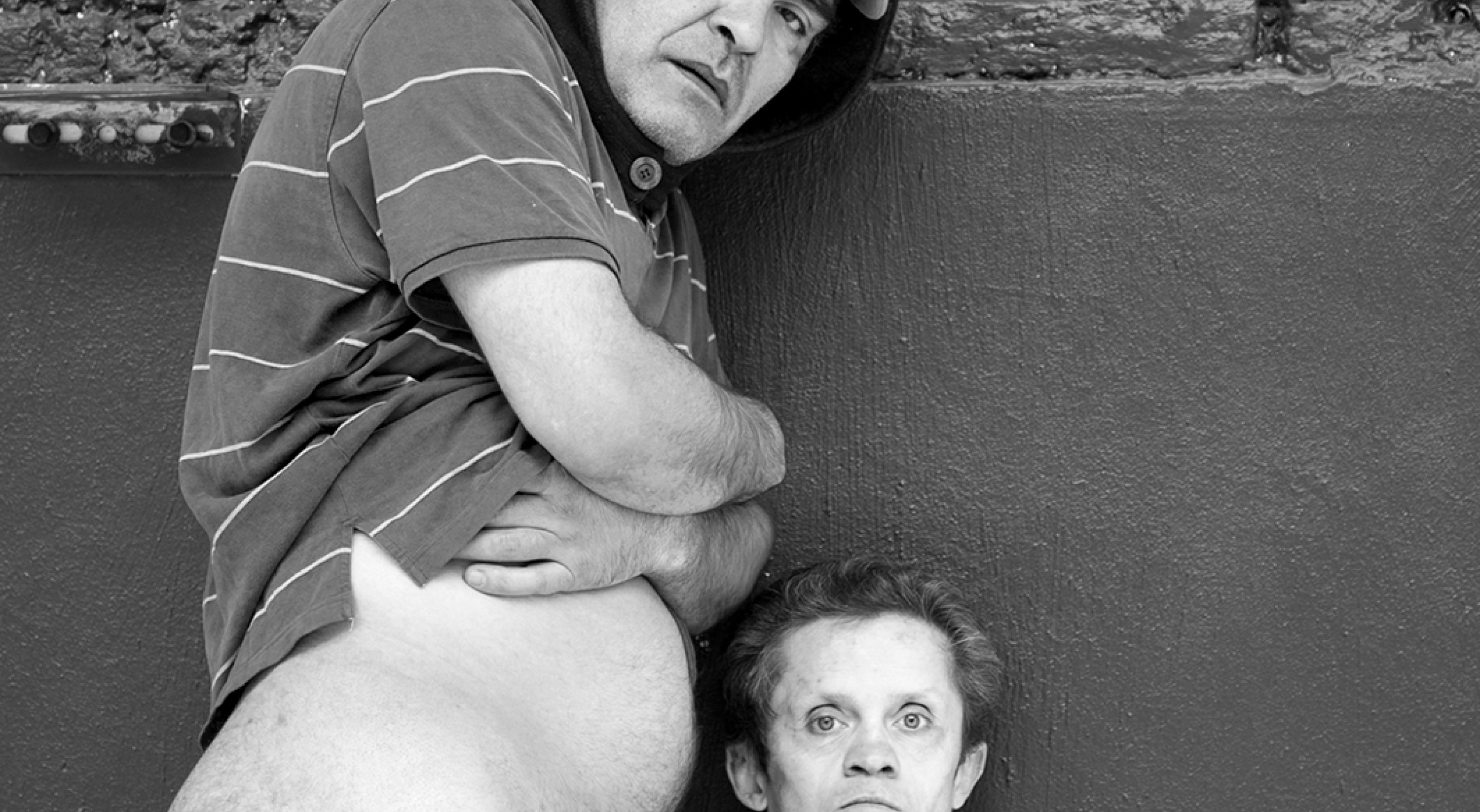Luis Guenel
El Otro
novembernov 15
novembernov 17
novembernov 25
novembernov 29 - december – dec 29
Inspired by Soul’s Infarct by Paz Errázuriz and Diamela Eltit
Directed by Luis Guenel Soto
With Daniel Antivilo, Luz Jiménez, Ángel Lattus, Millaray Lobos, Francisca Márquez, José Soza, and Rodrigo Velásquez
Assistant director, Francisco Medina
Stage and costume design, Catalina Devia
Lighting, Ricardo Romero
Musical composition, Jaime Muñoz
Photography, Paz Errázuriz
Video, Carola Sánchez
Graphics, Alejandro Délano
A production by Teatro Niño Proletario – Santiago de Chile // In association with Théâtre de la Ville-Paris ; and Festival d’Automne à Paris for performances at Théâtre des Abbesses // With support from the Department of Cultural of the Chilean Ministry of Foreign Affairs // First performed in 2012 in Chile.
This piece brings to the stage a mad, unbounded and altogether unique love for another. On the stage, images enter into movement via seven halting bodies, in varying states of distress or survival. They make it possible for an encounter to take place between spectators and those that are different or alienated from us, and that society prefers to keep at a distance.
On the stage, we are presented with seven bodies - awkward as they are and occasionally bursting into song. All of them are either in love or in search of love. The space they inhabit could well be a psychiatric hospital, or any other place on the very fringes of normality. At the beginning, there was a book, Soul’s Infarct, a collection of photographs by Paz Errázuriz, accompanied by texts fro Diamela Eltit. The photographs, of couples, were taken about two hours’ drive away from the Chilean capital, Santiago, in the Putaendo asylum, a place in which the paths of madness and destitution meet. Together, the text and images talk of mad love, love for another and love which goes beyond the limits of what is socially acceptable. They provide the inspiration for this show by the Niño Proletario company, directed by Luis Guenel. Similar to the book, the piece offers up a series of tableaux, embodied onstage by the moving bodies of seven men and women that society has designated as being alien from us. In an attempt to wrench themselves from their silence, the images enter into movement, as if they have taken on flesh and bone. They speak of fractured lives and distress, but also of survival. More than anything, though, they are an invitation for us to encounter those different from ourselves, and to think again about our own perceptions in society.
